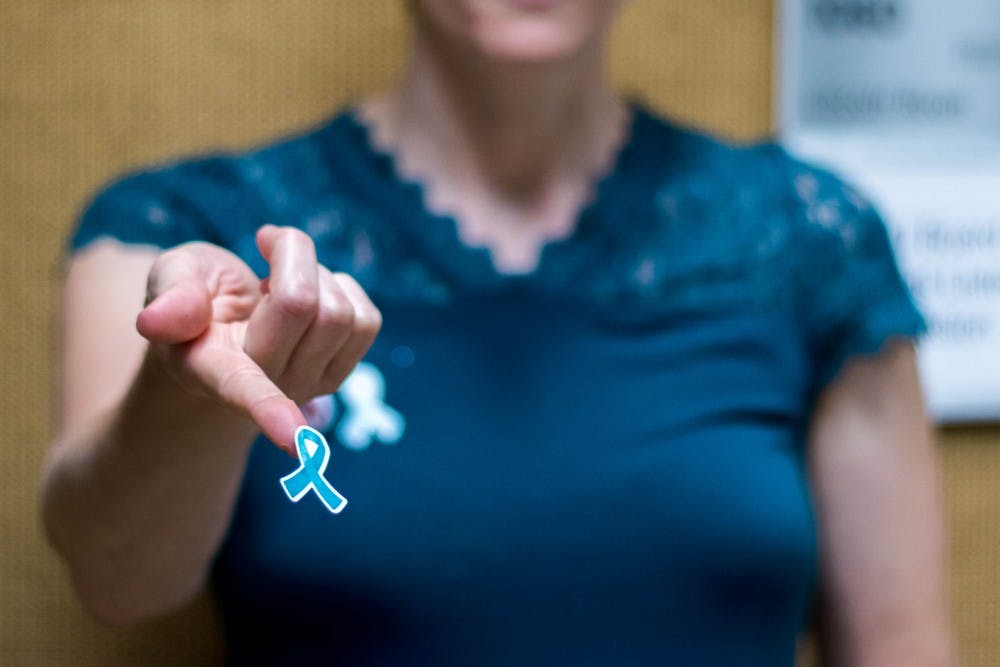The 'Red Zone’ phenomenon refers to the first few months after the transition from living at home to college where students are most vulnerable to experiencing sexual assault. During this time, the number of reported sexual violence cases among first and second year students are higher than the rest of remainder of the academic year.
Presidential Advisor for the Relationship and Sexual Violence Misconduct and Associate Professor in the School of Social Work Dr. Carrie Moylan said according to her research, the Red Zone phenomenon is prevalent at Michigan State University.
The ‘Know More at MSU Campus Survey,’ sponsored by Michigan State University, surveyed more than 11,500 volunteers in spring of 2022 on the “culture, perceptions and policies associated with relationship violence and sexual misconduct at Michigan State."
According to the survey on the MSU Culture of Support website, the largest number of sexual assault incidents took place in September and October. Those months are considered ‘high risk,' but disproportionately so for first and second year students.
Moylan said in a new environment such as a college campus, it may be more difficult to summon up the courage to step in and interfere in a potentially dangerous situation. This contributes to the phenomenon known as the ‘bystander’ effect.
“If you are new to a community and an environment and you're at a party with people you don't know very well, to sort of summon up the courage to be a bystander, I think there's some additional barriers,” Moylan said.
Moylan said another factor that contributes to the ‘Red Zone’ is that students may not be aware that Michigan State University offers a range of resources.
“Students are so inundated with information about what's here at this pretty large institution that sometimes they don't realize, or don't remember having been told at orientation, that these services exist,” Moylan said. “So for our campus and other campuses, I think it's a challenge to make sure students know what resources are available.”
Resources for students and faculty exist all-year round:
ASMSU Safe Ride: If you are in need of late-night transportation, Safe Ride offers free rides to students until 1:30 a.m. According to the ASMSU website, Safe Ride is “proven to reduce assault-related dangers and drunk driving both on and off campus.”
Sexual Assault Healthcare Program: Specialized forensic nurses offer a free 24/7 physical examination, treatment, emergency contraception, recommendations for follow up care and collects forensic evidence within five days of an assault.
Center of Survivors: The Center of Survivors offers a 24/7 ‘Crisis Chat’ helpline at (517) 372-6666 as well as individual and group therapy for survivors.
Safe Place: Free and confidential services for survivors of relationship violence and/or stalking including “advocacy, shelter, counseling, support groups, safety planning, information and referrals to survivors of relationship violence and stalking.”
Employee Assistance Program: Free and confidential counseling to current and retired MSU faculty, graduate assistants and their families.
“The most important thing to know is that there are resources available on our campus, for survivors to know that it's never their fault if something happens to them and that there are places who will talk with them about their options without any judgment,” Moylan said.
Moylan said it is especially important for students to look out for one another as they make the transition from home to college.
“Students should be looking out for one another when they are interacting with new peer groups, keeping an eye on each other, and making sure that they're doing what they can to keep the environment that they're in safe environments,” she said.
Support student media!
Please consider donating to The State News and help fund the future of journalism.
Discussion
Share and discuss “The Red Zone: Resources for the most vulnerable time for sexual assault on college campuses” on social media.







